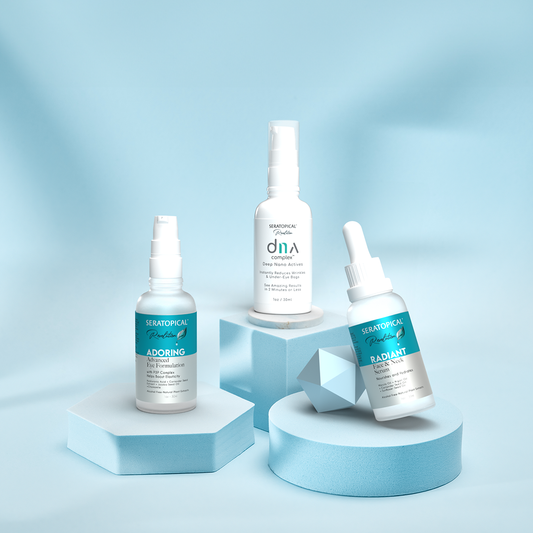What is an electrolyte imbalance? An electrolyte imbalance is when the electrolytes or minerals that help your body to maintain hydration and pH balance are out of balance. Fluid intake may affect your electrolyte levels and may also affect other issues that may make you unable to intake or maintain fluids and hydration. An electrolyte imbalance can lead to occasional muscle cramping and other common symptoms. A proper balance can be regained with adding fluids by a medical provider if the electrolyte imbalance is severe. Supplements for electrolyte imbalances are used commonly by athletes or people who partake in sporting activities that involve intense physical exercise.
What Causes Electrolyte Imbalances?
Electrolyte imbalances are commonly seen in athletes engaging in heavy exercise and physical activity which may lead to body fluid loss, especially during hot weather conditions. Electrolytes are required for the important functions in the body and severe electrolyte imbalances can be life threatening. Electrolytes such as sodium are important to ensure proper hydration levels in athletes. Potassium and magnesium are also important electrolytes as they ensure the proper functioning of the major organs in the body.
Electrolyte Imbalance Signs & Symptoms
Electrolyte imbalance can manifest through various signs and symptoms, depending on the specific electrolytes affected and the severity of the imbalance. Common signs include muscle weakness, spasms, and cramps due to disturbances in calcium, potassium, and magnesium levels. Irregular heartbeat, fatigue, and confusion may indicate disturbances in sodium levels. Additionally, dehydration, excessive thirst, and altered mental status can occur with electrolyte imbalances. Prompt recognition and treatment are essential to prevent complications associated with severe electrolyte disturbances.
Types of High Electrolyte Imbalances
High electrolyte imbalances can encompass various types, each posing distinct risks to health. Hyperkalemia, characterized by elevated potassium levels, can lead to cardiac arrhythmias and muscle weakness. Hypernatremia, an excess of sodium, may result in dehydration and neurological symptoms like confusion and seizures. Hypercalcemia, an elevation in calcium levels, can lead to kidney stones, muscle weakness, and cardiac issues. Timely identification and management are crucial to prevent complications associated with high electrolyte imbalances.
Types of Low Electrolyte Imbalances
Low electrolyte imbalances encompass several types, each presenting unique challenges to health. Hyponatremia, characterized by low sodium levels, can lead to symptoms ranging from nausea and headaches to confusion and seizures. Hypokalemia, a deficiency in potassium, may cause muscle weakness, irregular heartbeat, and fatigue. Hypocalcemia, a reduction in calcium levels, can manifest as muscle cramps, tingling sensations, and osteoporosis. Prompt recognition and treatment are vital to mitigate the risks associated with low electrolyte imbalances and prevent potential complications.
Electrolyte Deficiencies
It is also possible for people to have electrolyte deficiencies, people who often have common symptoms of electrolyte imbalance should consult with a medical advisor as there are tests that can be conducted to diagnose a deficiency. Tests usually involve diagnosing symptoms as well as possibly taking blood tests. Electrolyte imbalances are common in people who may experience occasional illness, as this is the treatment commonly provided for people who are fighting off infections. There are also cases where athletes partaking in intense sporting races will require more electrolytes and fluids if their electrolyte balance shifts out of place.
What are the Risk Factors for an Electrolyte Imbalance?
Several factors can contribute to the development of electrolyte imbalances. Chronic illnesses such as kidney disease or heart failure can disrupt electrolyte balance. Diuretic medications, laxative abuse, and excessive sweating from intense physical activity or hot weather can lead to electrolyte loss. Poor dietary habits, particularly low intake of certain minerals like potassium and magnesium, can also increase the risk of imbalance. Additionally, conditions that affect hormone levels, such as diabetes or thyroid disorders, may disrupt electrolyte regulation. Close monitoring of these risk factors and appropriate interventions are crucial for maintaining optimal electrolyte balance and overall health.
Regaining an Electrolyte Balance
Depending on the cause of the electrolyte disturbances, such as physical activity, or whatever causes the electrolyte imbalance, there are different treatment methods to assist the body in regaining electrolyte balance. A healthcare professional will provide medical advice and usually replacement electrolytes to assist someone suffering from severe symptoms of electrolyte imbalance. Water intake can assist in reducing the possibility of an electrolyte imbalance, however in the event of intense exercise a person could require replacement electrolytes in the form of over-the-counter items as water alone may not suffice. Maintaining body fluids is important to help reduce the chance of an electrolyte imbalance. A simple reminder is that hydration is key to electrolyte balance - if your hydration is in place, then generally your electrolytes will remain in balance.
Electrolyte Issues
It is possible for a person to have a specific electrolyte problem. Depending on the type of electrolyte that the person has low levels of the way to help it differs. Electrolyte imbalance can generally be determined through your health care provider with simple tests which measures the levels of the different types of electrolytes in your body. Calcium, sodium, magnesium, and potassium levels may all affect what your health care provider finds with an electrolyte imbalance. These are all electrolytes and are required for the normal functioning of your body. Potassium, sodium, magnesium, and calcium are generally ingested through food and drinks. These are also available in over-the-counter items. Maintaining normal calcium level is important for electrolyte balance in the body. Calcium is also important for bone health.
At Home Electrolyte Imbalance Treatment
SeraLabs products with clinically backed ingredients, originally created the RecoverB Nutri-strips for high performing athletes, but they are now available and suitable for anyone leading an active lifestyle, or requiring additional help with maintaining a correct electrolyte balance. RecoverB Nutri-strips contain 25mg of Sodium and 15mg of Potassium, important electrolytes that may help with muscle function and hydrating the body. A single, easy to take Nutri-strip will help to replenish the body's vital minerals, enhance hydration, and muscle function and assist in maintaining the important fluid balance in the body. RecoverB is also fast-acting, for on-the-go electrolyte rebalance in the event of sporting activities, or even hot weather situations.
Resources:
-
https://chemocare.com/chemotherapy/side-effects/electrolyte-imbalance.aspx
-
https://www.healthline.com/health/food-nutrition/how-to-prevent-an-electrolyte-imbalance
-
https://www.verywellhealth.com/electrolyte-imbalances-4800164
-
https://www.piedmont.org/living-better/signs-you-have-an-electrolyte-imbalance
-
https://en.m.wikipedia.org/wiki/Electrolyte_imbalance









